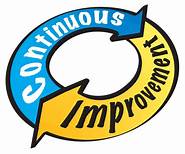Top 7 Symptoms, 4 Benefits & 8 ways to improve your Time Management
“If you want to make good use of your time, you’ve got to know what’s most important, focus on it and give it all the energy you’ve got.” – Lee Iacocca, Ford Mustang & CEO Chrysler
Topics: A: Symptoms: What? Late, Low QA + B: Benefits: Time, Opportunities & C: Improving Time Management: Goals, Prioritize, Plan, Break, Delegate, Distractions, Me-Time.

and Time is precious, particularly when it comes to starting or running a small Business or Project. While being your own boss is a dream for many, it comes with a lot of responsibility. No doubt, you never seem to be able to check off all the items on your To-Do list. It may seem like there’s an endless number of tasks and never enough time.
Work-Life Balance. If you want to maintain some semblance of work-life balance, your time management skills really need to be on point. After all, there are never more than 24 hours in a day. Some entrepreneurs respond to this fact of life with focus & purpose. Others ignore or panic.
With the right Time Management techniques, you can take control of your time – making your work efficient, productive & relatively stress-free. The following time management tips can help ensure you get your work done when you’re in the office, so you can enjoy your time away from work as well.
Guide to Time Management – Corp Finance Institution.
Time management is the process of planning and controlling how much time to spend on specific activities. Good time management enables you to complete more in a shorter period of time (productivity), lowers stress & anxiety +and leads to Business & Project Success.
A. 7 Symptoms of poor Time Management

1. Not knowing what to do. Lack of adequate prioritizing. Not determining the most important items to do first or to meet deadlines.
2. Not getting work done on Time. The inability to plan ahead and stick to goals means poor efficiency. For example, if there are several important tasks to complete, an effective plan would be to complete related tasks together or sequentially. However, if you don’t plan ahead, you could end up having to jump back & forth – backtrack, sidetrack – in doing your work. That translates to significantly reduced efficiency & lower productivity.
3. Loss of Control from No or Poor Plan’g, by not knowing what the next task is, you suffer from loss of control of your path. That can contribute to higher stress levels & anxiety.
4 Wasted Time due to Distractions. Poor time management results in wasted time. For example, by talking to friends on social media while doing an assignment, you are distracting yourself and wasting time.
5. Poor Quality of Work. Poor time management typically makes the quality of your work suffer. For example, having to rush to complete tasks at the last minute usually compromises quality.
6. Leads to Poor Reputation. If Clients, Customers, your Management or Team cannot rely on you to complete tasks in a timely manner, their expectations and perceptions of you are negative. If a Customer / Client cannot rely on you to get something done on time, they will likely take their business \ work elsewhere.
7.It can depress or ruin your Life. We can only stand so much losing. When you realize your situation, you want to do something about it. What will help? Take a look at the Benefits of & tips for more effective Time Management below.
B. Top 4 Benefits of Time Management

The ability to manage your time effectively is important. Good Time Management leads to improved efficiency & productivity, less stress, & more success in life. Here are some benefits of managing time effectively:
1. Gives you more Time to do what you want. Good Time Management gives you extra time to spend in your daily life. People who can time manage effectively enjoy having more time to spend on relationships, hobbies or other personal pursuits.
2. Opens up more Opportunities. Managing time well, leads to more opportunities on things you like to do and less time wasted on trivial activities. You can research or create new opportunities on things that fire your passion.
3. you Achieve your Goals. Individuals who practice good time management are able to better set & achieve goals & objectives, and to do so in a shorter length of time, and they feel good about. Now they have time for other things of their choosing. They’re not a slave to their work.
4. Anxiety & Stress reduced or eliminated. Making and following a task schedule reduces anxiety. As you check off items on your “To Do” list, you can see that you are making tangible progress. This helps you avoid feeling stressed out with worry about whether you’re getting things done.
C. 8 Tips for more effective Time Management – LinkedIN

1.Setting Goals is crucial to any good Time Management method. To make sure you’re engaging in activities that support your business goals, both short- & long-term, you need to define those goals in terms that are clear & concise. Many companies find that the SMART goals methodology helps keep them on task and on track. SMART goals help you create clear step-by-step tasks to help you get where you need to go:
- Specific: exactly what needs to be attained.
- Measurable: The goal can be measured as you go, to track your progress
- Attainable: within the realm of possibility, but still ambitious.
- Relevant: to the end result you want.
- Timely: when you expect to attain this goal.
Once you’ve set your SMART goals, you can work backward to determine the individual steps you’ll need to achieve your goals. Your To-Do List should revolve around working on tasks and activities that directly relate to growing your business.
2. Prioritize wisely. Once you’ve set your goals and determined the individual tasks you need to complete to achieve them, it’s time to “prioritize”. Of course, you want to make sure you’re getting things done, but they should be the “right” things, the most important things.
- Important & Urgent: which must be done right away. Focus your energy on completing your most important and urgent tasks before moving on to less time-sensitive items.
- Important, but not Urgent: Tasks that may appear important, but can be postponed to a later date – if necessary.
- Urgent but not Important: Tasks that make the most “noise,” but when accomplished, have little or no lasting value. Delegate these tasks if possible.
- Not urgent and not Important: Low-priority. Do later.
3. How to Plan to Succeed. One of the worst things you can do is jump into the workday with no clear idea about what most important needs to get done. While it might seem like a waste of time to take five to ten minutes to think ahead rather than getting straight down to business, you’ll be surprised at how much more efficient you can be just by dedicating a little time to planning out the rest of the day.
Planning. If you plan your time wisely, you can focus on one task at a time, rather than wasting time jumping from one thing to the next (& rarely completing anything on time). This allows you to work smarter, not harder. Depending on your personality, make one of the options below part of your daily routine:
- Plan the night before: At the end of the day, take a few minutes to put together a list of the next day’s most important tasks. It’s a great de-compression technique, and you’ll feel better in the morning.
- Plan 1st thing in the morning: Arrive a few minutes early and create your “prioritized“ To-Do list.
4. Take a Break between Tasks, otherwise, it is harder to stay focused, energized & motivated. A break will also re-boot your brain and allow new ideas to come in. (ie, a short walk).
5. Tracking your Time is an extremely effective measure to help you determine – exactly how much time a single task takes you. Make a note on start & finish times, then take off for distractions. Now you can see exactly where you’re spending your most valuable asset — and where it’s being wasted.
6. Delegate as much as you can. If you’ve talented, dedicated employees or associates, one of the most significant Time Management tools available to you is the power to delegate. Running a successful small business or project depends on the leaders’ ability to think about what lies ahead and not get mired down in day-to-day operations. Look for opportunities to pass responsibility for specific tasks to others on your team, associates, or colleagues.
7. Just say No !!! You’re the manager of your own life. If you have to decline a request, in order to do something that’s truly important & urgent, do not hesitate to do so. The same goes for any projects or activities that you’ve determined are headed nowhere: Be prepared to move on to more productive tasks. Learn from experience to avoid “wasting time” later on.
8. Eliminate Distractions. Start paying attention to the number of times someone interrupts you when you’re in the midst of an important task. Track self-induced interruptions, too, particularly those of the social media or smart-phones. It may take a massive exercise in “will power”, but try to significantly reduce your distractions – to maximize your time. Instead of being “always available,” plan a break in the day to catch up on Email, make Phone calls, Talk with others, etc.
9. Take time for Yourself. This tip is often forgotten in the hustle & bustle of running a business or project; (ie, getting plenty of sleep & exercise) — is critical to maintaining any upward growth trajectory. It helps improve concentration, sharpen memory, speed up your ability to learn, and even lower your stress levels
Balancing your Life. Making sure you have some free time each day to spend on the people and things you love outside of your business is important for your mental health, and can help keep you energized and passionate about your work. It’s important to keep things in perspective.
Comments: Is there anything you could add to Symptoms, Benefits & Improving Time Management
For more Info, click on Time Management.
